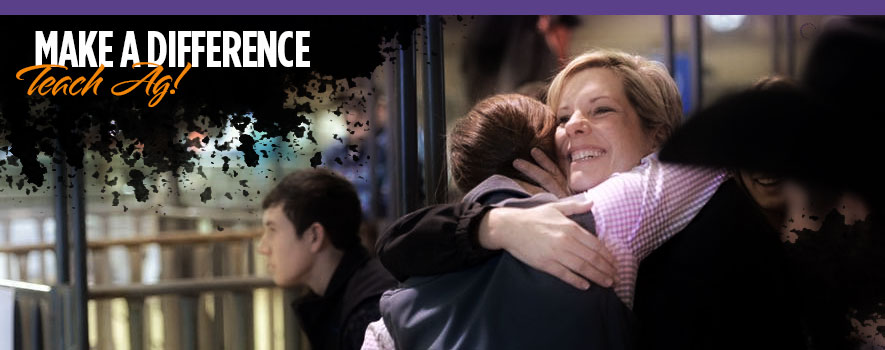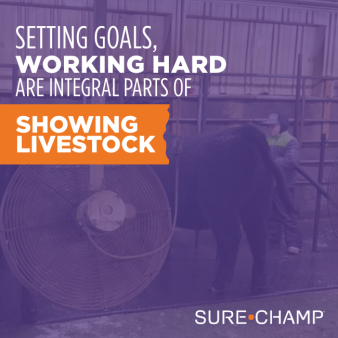
So, you think you might want to teach agriculture? Maybe you have been inspired by your current or former ag teacher. Perhaps you have a passion for ag and want to share that with others. National Teach Ag Day is September 21, and we’ve reached out to two agriculture educators to get their perspectives on what you should know before you follow this career path.
Meet Susan Henderson Perry
While serving as a 4-H leader in college, an advisor asked her if she had ever considered teaching high school agriculture. It was then that Susan decided that being an ag teacher was the career path she wanted to pursue. Susan said, “I was very involved in FFA and loved it. I wanted to give kids the same opportunities that I had.” Susan taught high school agriculture for 20 years before entering the livestock nutrition world. Today, she is a sale representative for Associated Feed & Supply in California.
Meet Kinzie Selke
Kinzie Selke, a past Sure Champ® intern, didn’t intend on being an ag teacher. However, during college she began to miss FFA and the connections she had made through ag education. “My ag teachers had made a huge impact on me, and without them I am not sure I would have found my direction,” she said. Today, Kinzie is in her third year as an ag teacher and is starting a new program from the ground up at Weskan High School in Kansas.
WE ASKED A FEW QUESTIONS…
What is your favorite part of being an agriculture teacher?
Susan: My passion is in the livestock industry so I loved coaching the livestock and horse judging teams. The teams are a great way to introduce students to the industry without having to invest money in an actual project. Every time we would board the plane for our national contests, I would have at least one student who had never ridden on an airplane. It is always very fulfilling to know that you are opening up new doors for kids.
Kinzie: I really enjoy watching students learn and find something they are passionate about. Often a student will be in one of my classes because they were just looking to fill an hour. When they start out they think agriculture is only farming, but then they realize everything it encompasses.
What is a challenge you faced as an ag teacher?
Susan: As states change their curriculum requirements, ag teachers have really had to change up their classes to meet the needs of students. At times, I felt we were watering down the agriculture part of the curriculum.
Kinzie: If you go into agriculture education to make a lot of money you are going to be disappointed. A lot of people that go into ag education often turn down industry jobs that are much higher paying, so you really have to have a passion for it. And then schools are usually on a limited budget so being creative with dollars you have to spend is important too.
If a high school or college student wants to teach ag, what should they consider?
Susan: Be prepared to work hard if you want your students to succeed.
Kinzie: Be involved in as many parts of agriculture as possible, and make time to network. I grew up with livestock and focused more on animal science, but now I have to teach soils and plant science, and I even taught welding for two years. It was those connections that helped me, and in return helped my students.
If you are interested in becoming an agricultural education teacher, visit www.teachag.org to learn more and access some valuable resources.

